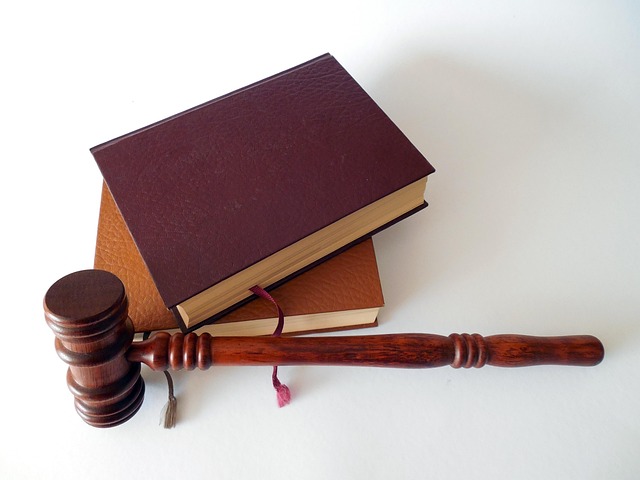Criminal law enforcement deals with preventing, investigating, and prosecuting crimes for public safety and justice. Understanding this system is crucial for those interested in class action lawsuits against white-collar crimes like fraud. Joining such a lawsuit involves several steps, including meeting specific criteria set by courts, gathering evidence, and filing or opting into existing claims within deadlines. Legal professionals guide plaintiffs through the process, aiming for compensation, dismissal of charges, and potential policy changes. The benefits include substantial financial gains and deterring future misconduct.
Criminal Law Enforcement: Navigating Justice Through Collective Action
In the pursuit of justice, class action lawsuits stand as powerful tools for individuals affected by systemic wrongs. This article provides an in-depth look at criminal law enforcement’s role in these collective actions. We’ll explore the eligibility criteria for joining a class action, outlining the essential steps to participate. From understanding the legal process to recognizing the benefits, readers will gain insights into their potential to drive change. Legal professionals’ pivotal roles and the diverse outcomes of class actions round out this comprehensive guide on effectively utilizing this legal strategy.
- Understanding Criminal Law Enforcement: An Overview
- Eligibility Criteria for Joining a Class Action Lawsuit
- The Process of Filing a Class Action Lawsuit
- Role of Legal Professionals in Class Action Suits
- Potential Outcomes and Benefits of Participating in Class Actions
Understanding Criminal Law Enforcement: An Overview

Criminal law enforcement is a complex and multifaceted field that involves the prevention, investigation, and prosecution of criminal activities. It encompasses a range of agencies and professionals working together to ensure public safety and justice. Understanding this intricate system is crucial, especially for those considering a career in law enforcement or seeking legal recourse through class action lawsuits.
To join a class action lawsuit, individuals must first grasp the fundamentals of criminal law. This includes recognizing various offenses, such as white-collar and economic crimes, which often require unique strategies to combat due to their complex nature. An unprecedented track record of successful prosecutions demonstrates the effectiveness of these approaches. By learning these steps, whether one aims to contribute to law enforcement or take legal action, they can navigate the system more effectively.
Eligibility Criteria for Joining a Class Action Lawsuit

Joining a class action lawsuit involves several steps, with eligibility criteria being a key factor. To be part of this legal process, individuals must fit specific parameters set by the court or legal representatives overseeing the case. These criteria often include having been affected by the same illegal act or practice, as well as meeting certain financial thresholds regarding the damages incurred. The general criminal defense approach in such cases focuses on collective action, where a large group of people come together to challenge an entity, like a corporation or government body.
Eligibility extends beyond financial loss; it also considers the nature of the harm suffered and the common thread among potential plaintiffs. This ensures that the lawsuit is representative of those who have faced similar injustices within the filantropic and political communities. The goal is not just compensation but also the complete dismissal of all charges for the affected individuals, offering a path towards legal redress and potentially reshaping industries or governmental practices.
The Process of Filing a Class Action Lawsuit

A class action lawsuit is a powerful tool for individuals who have collectively suffered harm due to a specific entity or individual’s actions. The process begins with identifying a common issue or injury that affects a large number of people. These cases are unique as they allow for collective legal action, where one judgment can benefit all plaintiffs involved. The first step in joining a class action is to assess if your case aligns with the criteria set by the plaintiffs’ attorneys. This typically involves reviewing the specific laws and regulations related to your situation, such as general criminal defense principles or industry-specific rules.
Once you’ve determined eligibility, contact the law firm handling the case. They will guide potential plaintiffs through the process, which includes gathering evidence, providing legal support, and ensuring all necessary documents are in order. The attorneys will represent the class, fighting for their rights and seeking compensation for the collective losses incurred. This approach is particularly effective when dealing with corporate and individual clients alike, as it leverages shared experiences to create a stronger case. Moreover, the impact extends beyond financial restitution, often influencing changes in policies and practices within philanthropic and political communities.
Role of Legal Professionals in Class Action Suits

In the realm of criminal law enforcement, legal professionals play a pivotal role in class action suits, which involve a group of individuals united by a common legal grievance against a respective business. These attorneys are instrumental in navigating complex litigation processes and advocating for collective justice. By joining forces, plaintiffs can achieve extraordinary results that might be unattainable through individual lawsuits. They pool their resources, expertise, and evidence to build a stronger case against wrongdoers, particularly in cases involving white-collar defense, where financial institutions or corporations are accused of unethical practices.
The steps to join a class action lawsuit are clear yet intricate. Potential plaintiffs must first identify the legal basis for their claim, ensuring it aligns with the criteria set by class action standards. This includes verifying whether they have suffered harm from the same conduct and possess similar claims. Once identified, individuals can file a complaint or join an existing one, forming a class with shared interests. Legal professionals guide this process, providing crucial support in gathering evidence, negotiating settlements, or preparing for trial to ensure justice is served for all members of the respective business affected.
Potential Outcomes and Benefits of Participating in Class Actions

Participating in a class action lawsuit can have significant outcomes and benefits for both corporate and individual clients involved in general criminal defense cases. One of the primary advantages is the potential for achieving extraordinary results through collective action. By pooling resources and sharing legal strategies, plaintiffs can leverage their combined power to secure substantial settlements or judgments that may be unattainable individually. This collective approach not only amplifies the financial gains but also serves as a powerful deterrent against future misconduct by wrongdoers.
The steps to join a class action lawsuit are relatively straightforward. Typically, interested parties must first meet the criteria for inclusion in the class. This often involves demonstrating that they have suffered harm or losses due to the same or similar conduct. Once eligible, individuals can file a claim or opt-in to an existing one. It’s crucial to act promptly as there are usually deadlines for joining such lawsuits. By following these steps, those affected by criminal offenses can contribute to meaningful legal actions that could bring about positive changes and significant financial compensation.
Class action lawsuits are a powerful tool for individuals to collectively seek justice and hold powerful entities accountable. By understanding the process, from identifying suitable cases and meeting eligibility criteria to filing and engaging legal professionals, individuals can take meaningful steps towards joining a class action. These suits offer significant potential outcomes and benefits, ensuring that voices are heard and rights are protected. Remember, each step brings us closer to revolutionising legal enforcement and creating a fairer system for all.






